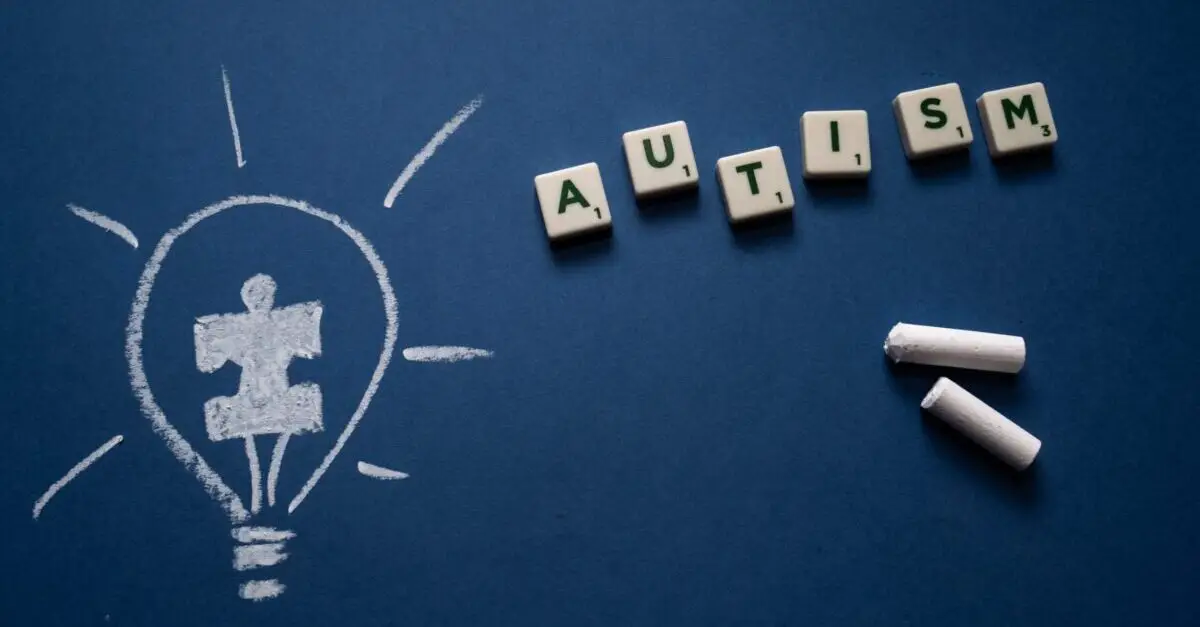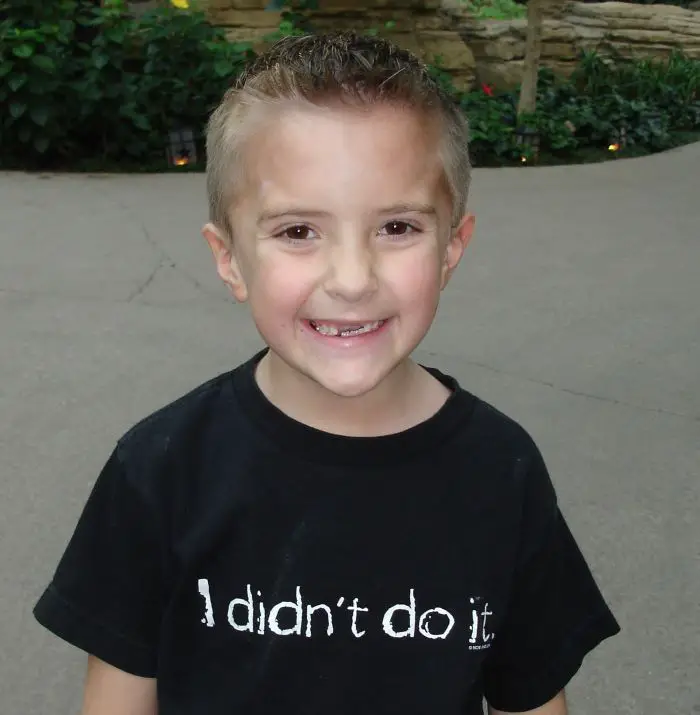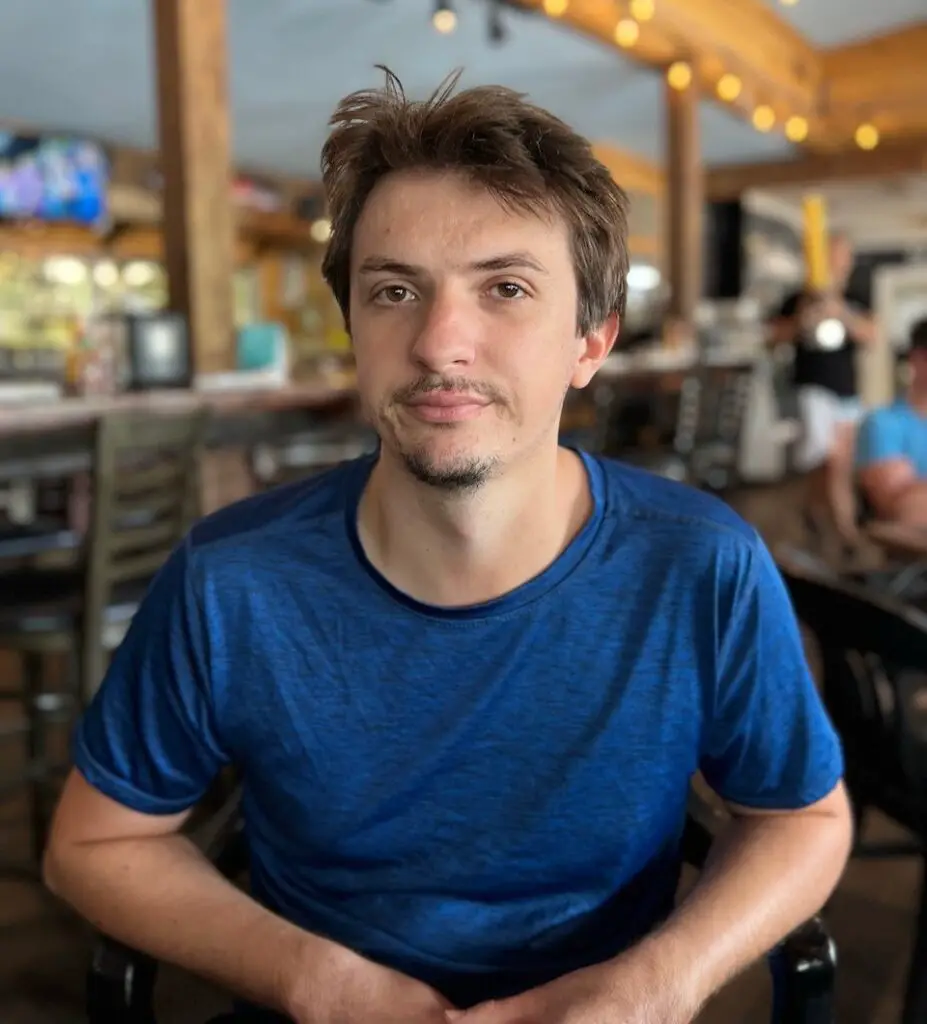Growing Up Autistic: How I Overcame Challenges and Now Thrive
It didn’t seem to be any one thing that I did or didn’t do that answered the question, “Am I neurodivergent?” No one knew it initially, but I was growing up autistic.
I was the youngest of three kids, and being the baby was okay by me. My slightly older sister (we were just 23 months apart) decided she knew best for me. I was an easy child, I was told, and went with the flow in our always-busy family of 5. I didn’t have awareness of being different than others back then, but growing up autistic was just who I was.
 Although it didn’t seem to be a problem for me, I apparently didn’t talk a lot when I was a youngster. People said that was because my sister did and said everything for me.
Although it didn’t seem to be a problem for me, I apparently didn’t talk a lot when I was a youngster. People said that was because my sister did and said everything for me.
I also was told I was hard to understand at times, although my sister interpreted for me as well.
Looking back, those were red flags, I suppose. Other possible flags were that I hated really loud noises and preferred structure and routine. But, to me, then as well as today, doesn’t everyone?
Little did I know, that I was growing up autistic.
Read more about autism and speech challenges that can affect some individuals:
- Beyond Words: Exploring the Power of Nonverbal Autism
- Talking As Fast As I Can Mentality: How to Dial Back Speaking Speed
- Surprising Connections: Why Autism and Apraxia Share Common Ground
Growing up autistic can mean additional challenges beyond what is experienced by someone who is neurotypical. Autism impacts communications, social skills, behaviors, and emotions, and while those areas can be addressed to support a more successful life, autism is not something that goes away or is fixed.
Onward Early Childhood Program and Growing Up Autistic

Or, I guess it would be better said to say whether I was “typical” or had “special” needs.
I started early childhood enrichment at 4 and then pre-k, before I started kindergarten. I was older than some kids in kindergarten by a year as a result, and I didn’t like that. But it was an overall good experience, and I attended a really great school.
To jump ahead, it was all good because I graduated from high school a year early, and I’ll talk about that more at the end.
What’s Up With Me: Am I Neurodivergent?
But back to the early days …. nobody really knew why I was different, but everyone knew I was. Diagnosticians mentioned terms like apraxia and delayed social development.
I met the milestones that doctors give out with each checkup and talked enough for me and didn’t show traits like stimming, lack of eye contact, or outbursts. Because of those things, including the fact I was around a loving family, protective big sister, and did so many things on par as the other kids in my classes, growing up autistic wasn’t on the table…yet.
I was put in a speech class throughout elementary school and given extra support, as needed. Feedback was consistent that I was happy, mostly engaged, and smiled a lot. I rode the bus to school and didn’t have disciplinary issues.
When I think back on my elementary school years, I remember good times and a positive environment. I also remember my mom bringing me lunch from my favorite fast food places so that we could sit together outside and enjoy the day.
Middle School Madness and The Ah-Ha Moment of Learning I Am Autistic
Before entering middle school, I met with school officials along with parents as a wrap-up to my elementary school years. They reviewed my progress, I was given a “good to go” check, and was dismissed from any extra support services other than speech. It still wasn’t known that I was growing up autistic.
Then, middle school happened. Attending speech was a huge issue for me because it caused me to miss academic classes, and then I had additional homework as a result. But that was only one challenge.
It was the end of my 6th grade year, after some terrible social and academic experiences, that my mom wanted to have me retested to see if I needed additional support. It was only then that I received the official autism diagnosis.
Actually, at that time, I was told that I had Asperger’s syndrome, but that was explained that it was being rolled into the broader definition of Autism Spectrum Disorder. And that’s how my family and I found that I was growing up autistic.
But learning I am autistic didn’t change what I did in middle school. I stayed in my same classes, although I did get a few accommodations such as being able to take certain tests in a more quiet room and to be exempt from rapid timed tests (like how many math facts can you answer in 60 seconds). Other than that, I tried out and made the tennis team, had a few friends, and had the same middle school experiences as mostly everyone else.
Learn more about:
- Autism vs Asperger’s Syndrome and What You Need to Know
- Autism Spectrum Facts: Good Reasons for Why It’s Called ASD
High School Years Were Neurodiversity Affirming
For some people, getting the official diagnosis can be life-changing, but for me, it really didn’t have a profound impact on me at any age or stage.
But my parents say “knowing” that I had a disorder and then being able to better understand me and my needs were important changes for the remainder of my education through high school, and then beyond.
I did what most others did in high school. I played a sport for a year, I learned how to drive, played a lot of video games, and took classes that were of interest to me.
I also tackled boredom by volunteering a lot and enrolling in some dual-credit courses with the local community college.
My volunteerism with my city’s Teen Court actually ended up with my being awarded a college scholarship. And the dual-credit courses ended up provided me with enough high school credits that I was able to graduate a year earlier than I initially thought.

So, while I started pre-school early with additional support and began kindergarten later than most of my peers, I graduated a year ahead of schedule. So it all worked out!
Knowing that I had experienced growing up autistic and understanding my strengths, challenges, quirks, and being uniquely me has served to help me navigate the world of being a young adult in an autism world.
Being able to acknowledge that I am neurodiversity affirming and that I am autistic has helped me to be happier and self-aware.
I don’t look at my diagnosis as a negative. Rather, I think growing up autistic has truly made me more appreciative of the world and a better person.
Learn more:
- Self-Identity: The Ultimate Guide to Finding Your True Self
- Self-Awareness Examples for Personal Growth When You Have Autism
- The Importance of Gratitude Attitude and How it Makes Life More Beautiful
And, if case you are wondering, I definitely don’t have adulthood all figured out. But I will definitely be giving it my all. I have great plans for my life having answered the question of am I neurodivergent and hope you do too!
Read more about Hope for the Future: Will it Transform the Autism World?
Additional Challenges Individuals with Autism Face
Learn more about other issues that autistics face:
- Autism After High School: Is College the Next Step?
- New Research Reveals Autism Mental Health Linked to These Disorders
- Is Autism a Disability? Surprising Reasons for the Debate
- Autism and Holidays: Why Special Occasions Can Be Challenging
- 6 Fascinating Facts About Autism You Probably Didn’t Know
- 8 Popular Ways to Manage and Master Autistic Social Awkwardness
- Autism and Poor Hygiene: The Smelly Truth to Overcome
- Breaking Down Barriers that Challenge Autism and Friendships
- Anxiety and Autism: 5 Powerful Strategies to Conquer Emotions
- 6 Ways to Tackle Autism Fireworks Anxiety and Sensory Overload
- Autism Family Support: 5 Ways to Achieve A Happy Household
Thanks for Reading
Welcome and thanks for stopping by. I really hope my My Autism Mind blogs build greater autism awareness, understanding, and connection.
Do you have a neurodiversity affirming diagnosis or have a friend or family member or child who has? I like to share my autistic mind about living as a young adult with autism and would very much like to hear from you.
Send me comments, questions, and feedback, please! Your responses will help me grow.
Also, if you think you could be neurodivergent, remember it’s never too late to be diagnosed.
Learn more about Autism Adult Assessment.